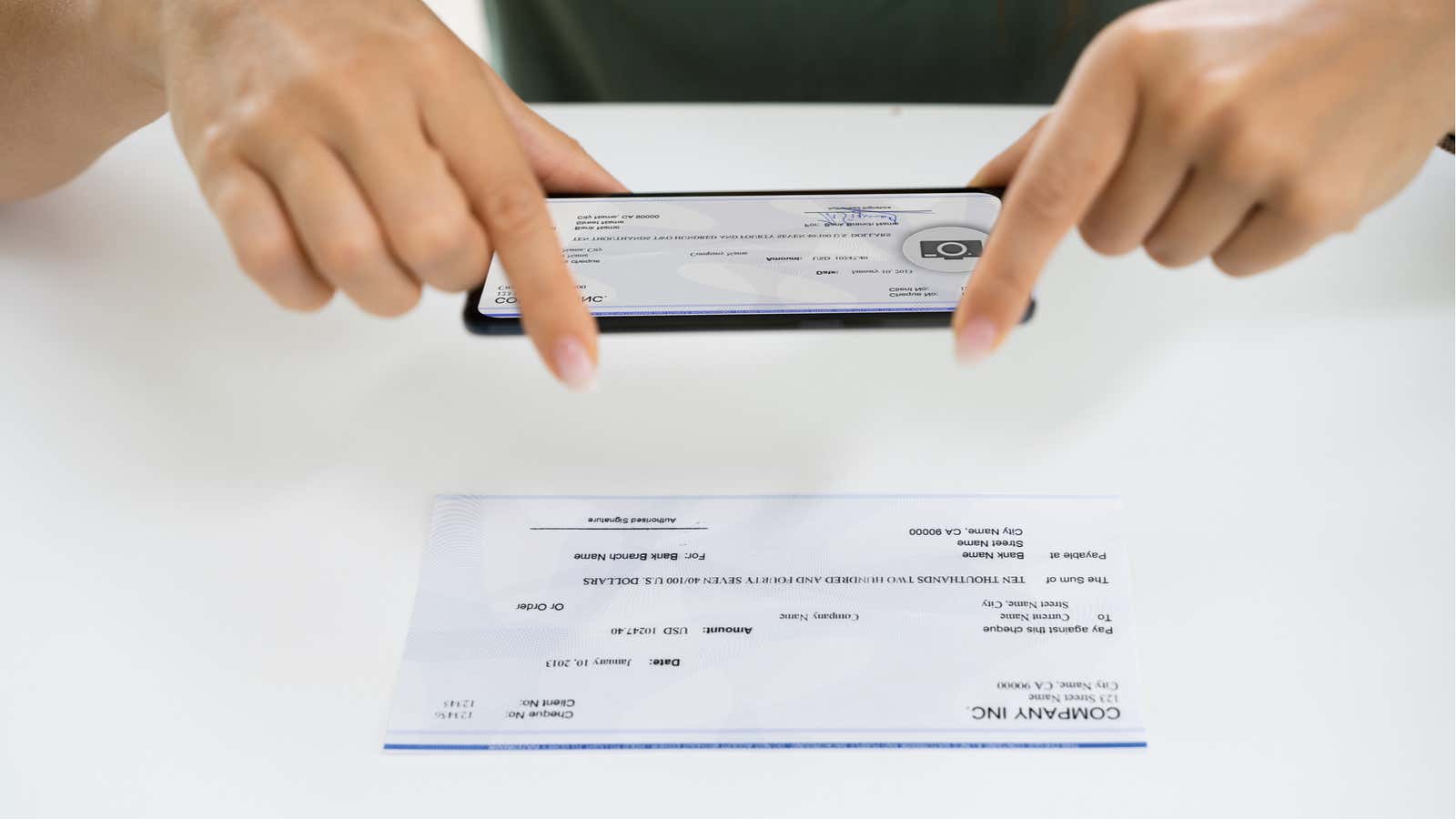Why the Bank Keeps Your Deposit for 9 Days

On the rare occasion that you receive money through an old-fashioned check, it is fairly easy to transfer that money into your bank account. You can deposit the check via your phone, put it in an ATM, or if you really want to, go to the bank.
But when it comes to actually having that money to spend after you make a deposit, you may be faced with a different situation. And there is one case where it still takes what seems like an eternity to access your money after depositing a check: if your account is new.
Plan ahead when opening a new bank account
If your account is more than 30 days old, your bank may hold checks for up to nine business days before giving you any of that money.
For most people, it doesn’t really matter – how often do you get a new account anyway?
But if by chance you recently changed your account and weren’t aware of this little snag, you might be waiting to access your money. Imagine changing banks because you want a sign up bonus (or because you just hate your old bank ), are about to deposit your salary, and then can’t do anything about it for over a week?
Fortunately, there is a way around this mess if you’re looking for a reason to change bank but still want to get access to your money in a timely manner.
The same rule that allows banks to hold your money for nine days also states that direct deposit must be available to the customer on the same day. This is really great for you because most of the banks offering cash bonuses for registering new accounts require you to set up a direct deposit in order to receive the bonus.
So, if you’ve just started a new job or just changed your direct deposit settings, make sure you have a new account for at least 30 days to reduce your chances of a serious headache at the bank. If you change banks, leave your old account open for a month or two until this retention period expires.
Why banks can keep your money for so long
Restriction on opening new accounts is the longest period for which banks are allowed to restrict you from receiving money when you make a deposit. This rule was created as part of a 2004 federal law commonly referred to as Check 21 . This law allowed banks to process electronic images of checks rather than physically transferring them all. This has reduced the time it takes to process checks.
There are a few more rules you should keep in mind when it comes to depositing checks:
Checks totaling less than $ 5,000 in one day: $ 200 must be available the next business day, $ 600 the second business day, and the rest the third business day.
There is an exception for checks issued by the federal, state or local government, your own bank checks, USPS money orders, cashier’s checks, and checks for less than $ 200. All of them are available within one business day.
Checks totaling more than $ 5,000 in one day: $ 200 must be available the next business day, $ 600 must be available on the second business day, and $ 4,800 must be available on the third business day. The rest is available by the seventh working day.
Direct deposit or bank transfer: available on the same day.
Cash deposit: available within one business day.